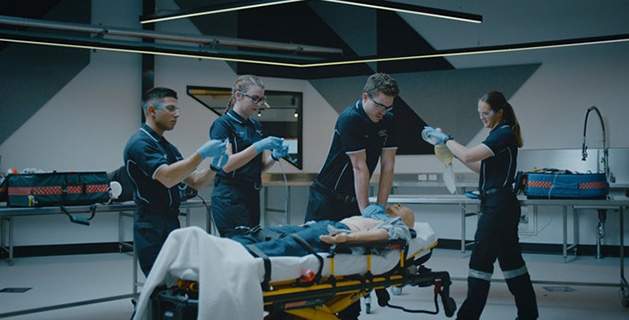Paramedic Interprofessional Placement
Back to Faculty
- Home
- Placement providers
- Our students
- Placement calendar
- Contact us
The School of Nursing, Paramedicine and Healthcare Sciences (SNPHS) is located on 6 campuses across NSW (Albury-Wodonga, Bathurst, Dubbo, Orange, Port Macquarie and Wagga Wagga), with over 2,000 students enrolled, and more than 60 academic staff supporting these students.
The SNPHS has a well-established reputation for delivering high quality programs of education – undergraduate, postgraduate, on-campus and online – in the discipline areas of paramedicine, nursing, midwifery, and Indigenous studies and mental health.
We also support a range of research programs with a specific focus on the expanding scope of:
Of particular importance are the strong and long-standing affiliations between the SNPHS and health service providers located across regional, rural and remote Australia.

The aim of clinical placements in our Bachelor of Paramedicine program is to provide quality, diverse health care and paramedic practice experiences that facilitate student learning and enable students to meet course objectives whilst transitioning to paramedic practice.
The work-integrated learning experience enables the student to demonstrate the professional competencies required to practice as a beginning Registered Paramedic (RP). Inquiry-based learning is a key educational philosophy utilised by the SNPHS. It requires students to engage in the learning process through problem solving, critical thinking, reflection and taking responsibility for their own learning (CSU, 2020).
Learning outcomes for each clinical subject are available in the relevant clinical subject outlines. In each clinical subject, BP students are required to apply a range of knowledge, skills and attitudes which supports their scope of practice relevant to the clinical subject they are undertaking. Students are able access these competencies via their online tracking tool – Comptracker.
Your role as a Charles Sturt Clinical Preceptor is to supervise, support learning, educate and evaluate students during their placement. As such, you contribute significantly to their learning experience